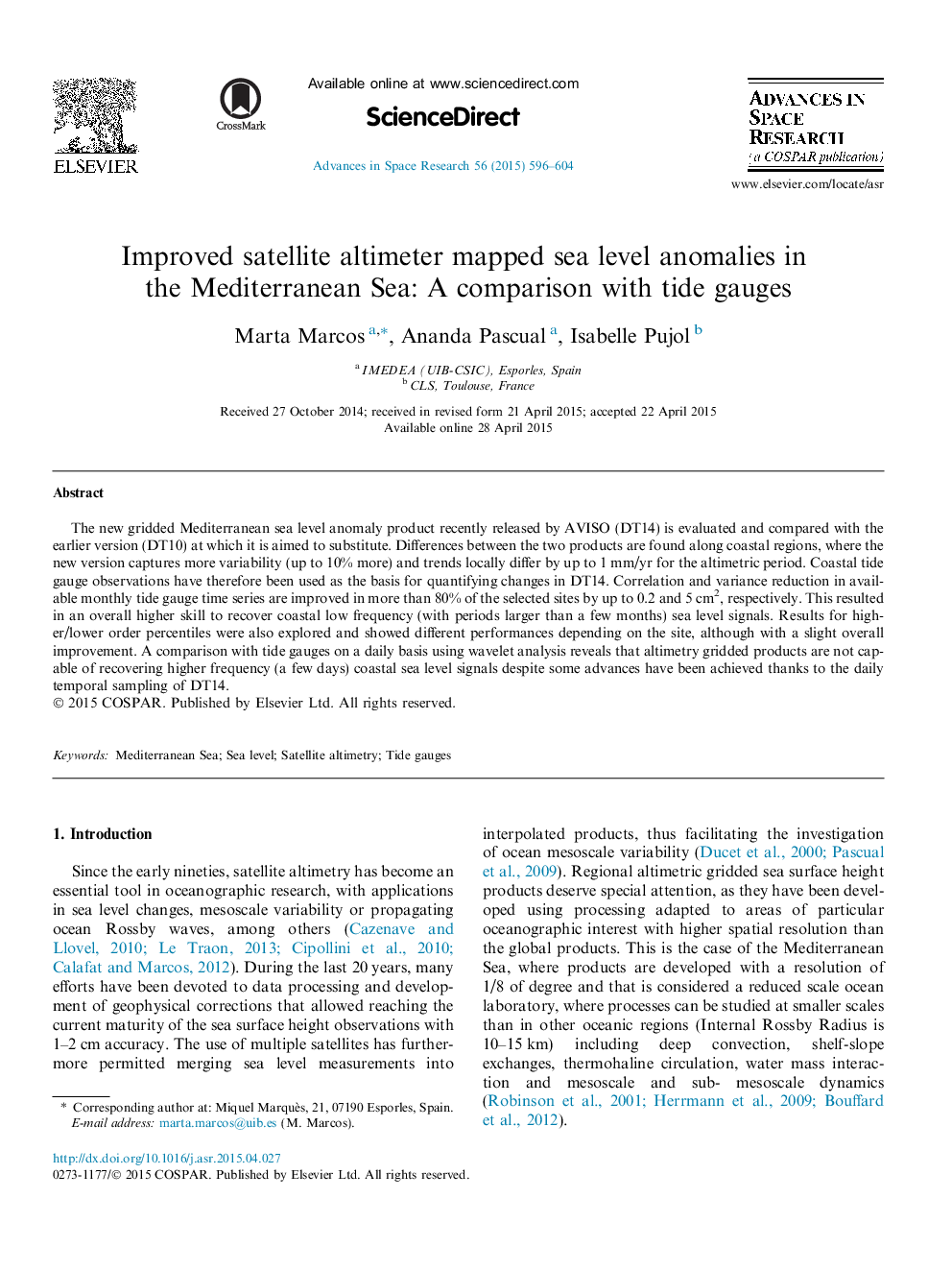| Article ID | Journal | Published Year | Pages | File Type |
|---|---|---|---|---|
| 1763316 | Advances in Space Research | 2015 | 9 Pages |
Abstract
The new gridded Mediterranean sea level anomaly product recently released by AVISO (DT14) is evaluated and compared with the earlier version (DT10) at which it is aimed to substitute. Differences between the two products are found along coastal regions, where the new version captures more variability (up to 10% more) and trends locally differ by up to 1Â mm/yr for the altimetric period. Coastal tide gauge observations have therefore been used as the basis for quantifying changes in DT14. Correlation and variance reduction in available monthly tide gauge time series are improved in more than 80% of the selected sites by up to 0.2 and 5Â cm2, respectively. This resulted in an overall higher skill to recover coastal low frequency (with periods larger than a few months) sea level signals. Results for higher/lower order percentiles were also explored and showed different performances depending on the site, although with a slight overall improvement. A comparison with tide gauges on a daily basis using wavelet analysis reveals that altimetry gridded products are not capable of recovering higher frequency (a few days) coastal sea level signals despite some advances have been achieved thanks to the daily temporal sampling of DT14.
Related Topics
Physical Sciences and Engineering
Earth and Planetary Sciences
Space and Planetary Science
Authors
Marta Marcos, Ananda Pascual, Isabelle Pujol,
